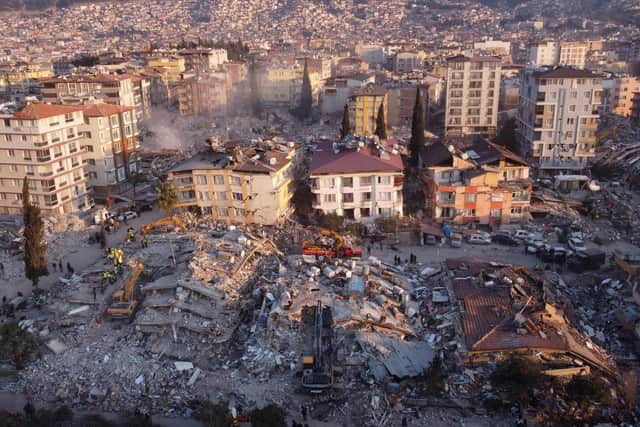Travel advice update for Spain, France and Turkey after earthquake, Covid and strikes
and live on Freeview channel 276
New official advice has been issued for holidaymakers travelling abroad with their families. If you’ve travelled abroad since Covid, you will have become accustomed to rigorously checking travel advice over the past few years, and that’s unlikely to change anytime soon.
In recent weeks, many holiday destinations have updated their travel advice surrounding Covid, from masks to vaccination passports. Rules surrounding self isolation, and testing for the virus also changed in France at the beginning of February 2023.
Advertisement
Hide AdAdvertisement
Hide AdThe devastating earthquakes in Turkey and Syria have also led to further updates from the Foreign Office with advice for travellers. An earthquake measuring at 7.8 hit Gaziantep and neighbouring provinces in the southeast of Turkey on February 6, 2023. A second earthquake which measured 7.6 on the Richter scale followed and hit Turkey’s southern-eastern region of Kahramanmaraş at 1.25pm local time.
Strong aftershocks were felt across Turkey and as far away as Egypt.Turkey is a popular destination for holidaymakers in the UK with the Government website stating that British nationals made over 3.33 million visits to Turkey in 2022 alone. If you have a holiday planned to the region, staying up to date with the latest advice is imperative.
So, what is the new advice given to holidaymakers heading to France, Spain and Turkey? Here’s everything you need to know.
Turkey travel advice
Following two tragic earthquakes and strong aftershocks, the Turkish government has announced a national emergency in the 10 provinces affected by the earthquake which include Kahramanmaraş, Gaziantep, Malatya, Diyarbakır, Kilis, Şanlıurfa, Adıyaman, Hatay, Osmaniye, Adana.
Advertisement
Hide AdAdvertisement
Hide AdThe death toll in Turkey and Syria surpassed more than 35,000 people on Monday (13 February)as people remain trapped in collapsed buildings on both sides of the border. The Turkish government has since declared a national emergency in the provinces affected by the earthquake.
The government website advises that holidaymakers should “follow the advice of the local authorities.” The Turkish Government has stated that only vehicles which carry aid teams and aid materials are allowed to enter cities deemed to be inside the area of the disaster.


Covid rules for Spain
Spain still has a number of health measures in place to stop the spread of Covid-19, however, the rules vary regionally with the Government website stating that the regional governing bodies “retain legal powers to ease or tighten restrictions within their territory as required.”
